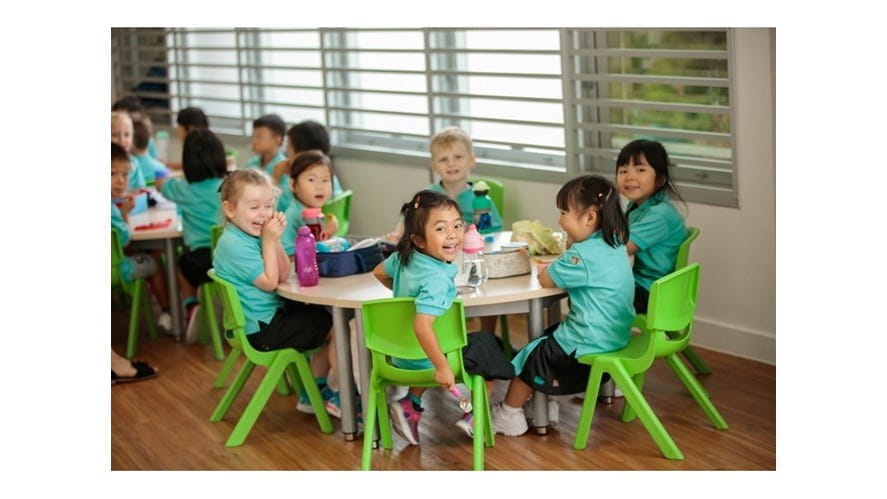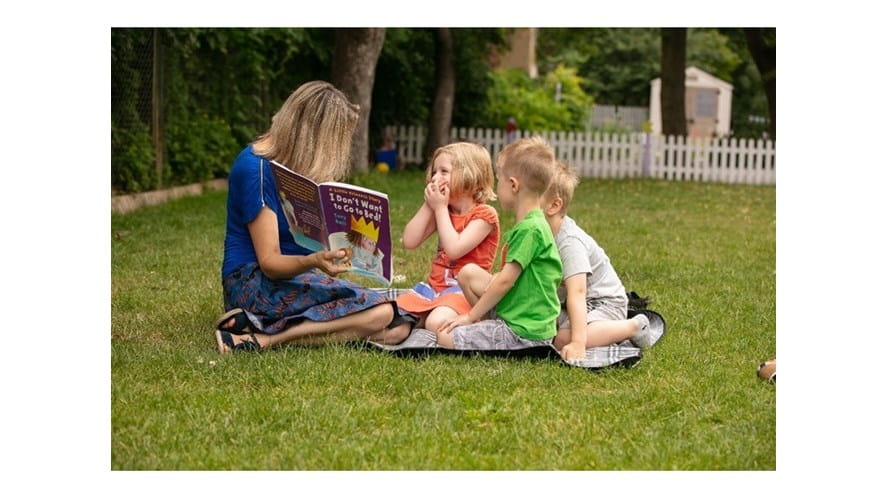We use cookies to improve your online experiences. To learn more and choose your cookies options, please refer to our cookie policy.

Getting your child ready for kindergarten is an exciting experience for both you and your child. It’s a new chapter in their life and one that should be embraced and enjoyed. As a parent, there is plenty you can do to make the transition as smooth as possible. Follow our guide to help facilitate an unforgettable kindergarten experience for your child.
To ensure your child has a memorable kindergarten experience full of fun and education, here are some actionable pointers to take in the weeks and days following up to your child’s move into kindergarten.
In preparation for the first day, build some excitement by going on a trip to get supplies. You may have been provided a list of things your child will need, so take this and head to your local shopping centre to get prepared. Let your child get involved in the colours and styles of pencils and stationery they want. This will help give them a sense of ownership and build anticipation for their big day at kindergarten.
Concentration, imagination, and creativity are characteristics your child cannot be without during their time at kindergarten. If they start the day feeling lethargic or tired, their ability to utilise those three skills is diminished. To ensure they are at peak performance, establishing a bedtime routine is key.
Children can be notoriously difficult to get to sleep, yet the importance of a bedtime routine can’t be understated. By telling your child a story before bed, you’ll help them to relax and make it easier to fall asleep. As a secondary benefit, story time can also help improve their reading – an important skill to develop during childhood. It also gives you the chance to bond with your child in a relaxed, creative environment.
As important as a bedtime routine is a consistent morning routine. One aspect that can’t be sacrificed is breakfast. Those characteristics – concentration, imagination and creativity – can’t be used to their full effect without it. The energy provided by food in the morning keeps our brains sharp in those waking hours. Sit down as a family and enjoy a morning breakfast, helping everyone start off the day right.
Discovering your child’s new school for the first time can be made easier if you are around when they first become familiar with these new surroundings. For that reason, we’d recommend you organise and attend a kindergarten visit before your child’s first day. Make sure you include the playground, classroom, and any other areas where your child will be spending a lot of time. Your company will help your child feel more comfortable in their new surroundings. Take this opportunity to meet your child’s teacher and, if possible, the head of the school.
Many kindergartens will offer this experience in the form of an orientation day. If this isn’t possible, be sure to make your own arrangements.
On the first day of kindergarten, there are likely to be some tears. As a parent, it’s important to be strong and allow your child to integrate into their new environment. Once you’ve dropped your child off at kindergarten and it’s time for class, make your goodbye as swiftly as you can. Even if your child is crying, leaving can help a child’s focus shift onto their first activity.
Teachers have seen this all before. They will know how to act and ensure your child is happy and safe throughout the day. Put your trust in them and let your child enjoy their kindergarten experience.
Starting kindergarten can be a tough time for parents and children. Handing over your child for a significant portion of the week and trusting those in charge with their development may take some getting used to. It is likely that it will also take your child some time to get used to a new teacher.
Make sure you’re present for the first meeting between your child and their new teacher. Get to know each other, making sure you take note of the teacher’s methods and how they differ from any previous teachers. Once a bond is established, check in regularly for details on how your child is getting along – both socially and academically. You’ll likely pick up valuable information you can use in your efforts to aid your child’s development.
Throughout their time at kindergarten, your child is going to have to call upon a number of skills. From social and language skills that help them engage with fellow students, to academic skills that help them succeed educationally, kindergarten exists to help children develop these competencies.

As a parent, you can support their development with a kindergarten readiness checklist. Create a simple document listing the skills your child requires to succeed, and populate them with some of the skills listed below:
Kindergarten years are vital to a child’s communicative development. Language skills apply to both speaking and listening.
Developing and maintaining meaningful relationships with fellow children is a vital skill that will prove useful throughout life.
Kindergarten is the first in a long journey of academic steps for your child. This may be the first time you monitor your child’s academic skill level.
This may be the first time your child has spent any significant time away from you. Measure their independence skills to see how they’re getting along.
These may vary from fine motor skills to outdoor physical activities and can feed into your understanding of the health of your child.
Once you’ve identified the most important skills to your child, create a simple checklist document. Break them down by category, helping you see which areas your child excels in at a glance. Support your child’s development when learning these skills and tick them off when they’ve been achieved.
Physical, intellectual, and social readiness are all valuable factors to monitor as a child approaches kindergarten. But without the emotional capabilities, your child will struggle to display any of those factors. Before they attend kindergarten, it’s important to consider your child’s control of their emotions and level of maturity. Consider the following characteristics:
Continue to monitor these things in the first few months of kindergarten. If they don’t show signs of improving, it might be worth having a word with your teacher. They might be able to share their experiences with your child, and you could consider making some changes to how your teacher and child interact.
But remember that no two children are the same; they will develop at different rates and in different ways. Your child’s development journey will not be directly comparable to that of their peers, so it is important to try and focus on the progress they have made as an individual, rather than judging it against the progress of other children.
Kindergarten is a vital part of early childhood education. It introduces children to brand new concepts, challenges them to interact with others, and develops skills that they will lean on throughout their entire lives. Kindergarten acts as a primer to primary education. As a parent, you can aid in their development before the next significant step in their education.
To learn more about our Early Years Programme, you may schedule a personalised online meeting with our Admisions Team.
Simply click the link below for details.